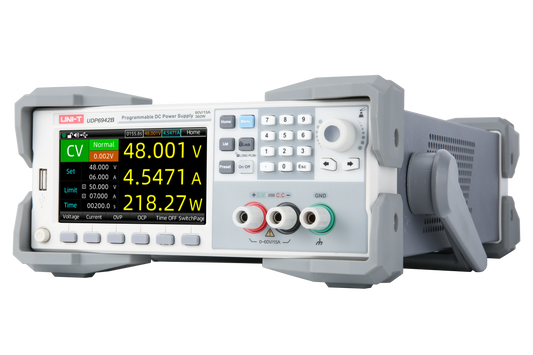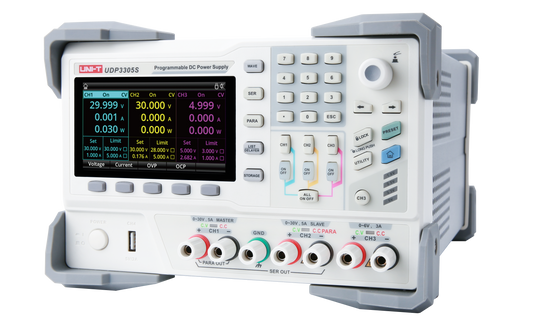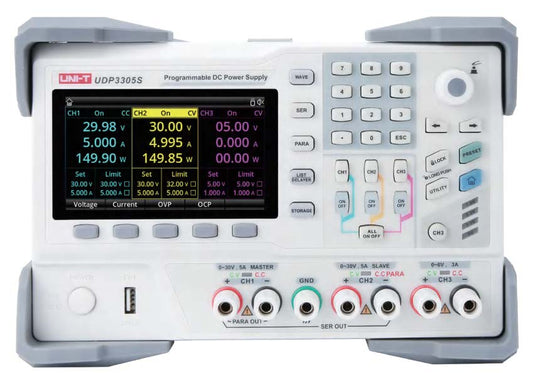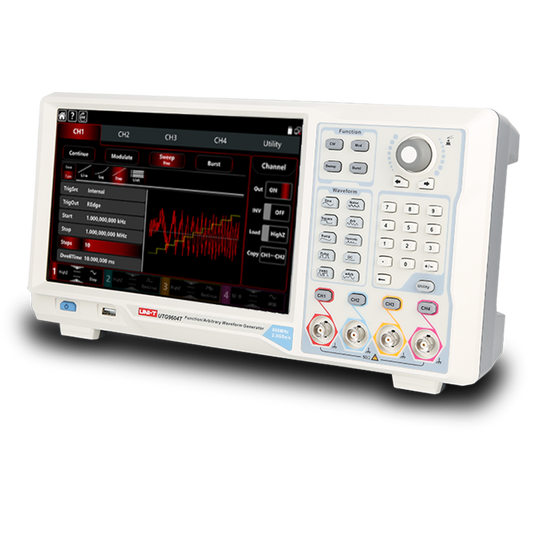Affordable Solutions for an Effective Electrical Engineering Student Test Bench
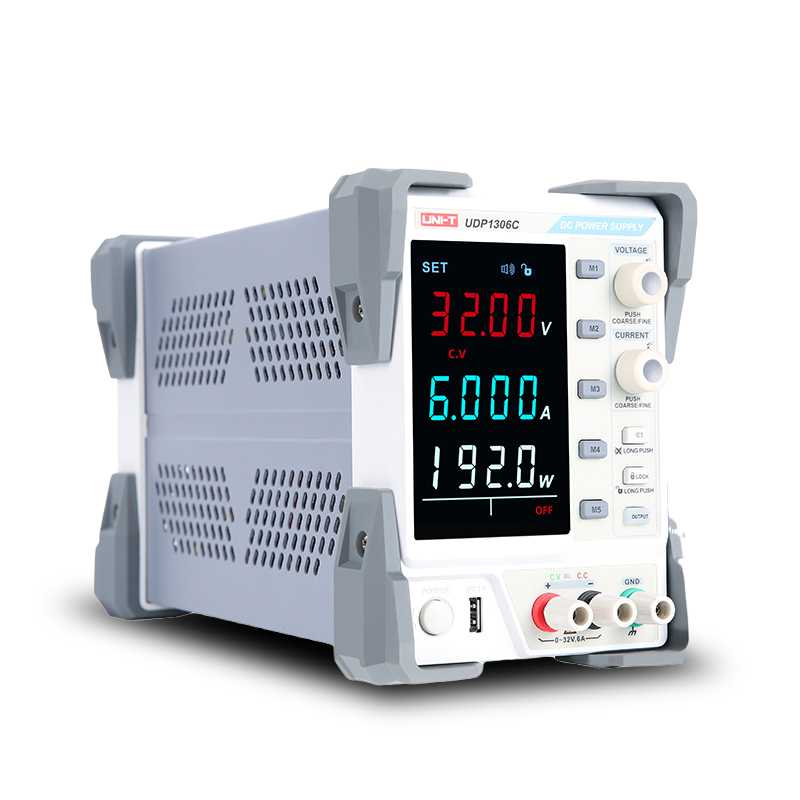
In the realm of electrical engineering education, creating a well-equipped and functional test bench is crucial for fostering a deep understanding of fundamental concepts and practical applications. This arsenal typically comprises essential instruments like a digital oscilloscope, spectrum analyzer, waveform signal generator, benchtop digital multimeter, and a DC power supply. However, accessibility to these instruments can be a significant concern, especially for students facing financial constraints. In this article, we emphasize the paramount importance of affordable solutions for each of these instruments, shedding light on their indispensable role in shaping the engineers of tomorrow.
Digital Oscilloscope: A digital oscilloscope is the backbone of any electronics laboratory. It allows students to visualize electrical signals in real-time, enabling a better grasp of waveform characteristics, voltage, frequency, and time intervals. Affordable digital oscilloscopes ensure that students have access to essential measurement capabilities without burdening their budgets, encouraging hands-on experimentation, and improving their practical skills in signal analysis.
For undergraduate student labs and maker spaces, a 200MHZ, 2 channel digital oscilloscope like the Uni-Trend UPO1202CS is a great choice. For more versatility, the Uni-Trend MSO2204 expands the channel count to 4, and also adds a 16-channel logic analyzer.
For advanced courses, the Uni-Trend MSO3503E ups the ante to 500MHz and offers options for a variety of triggers and signal decodes.
Spectrum Analyzer: Understanding frequency-domain analysis (FDA) is pivotal in modern electrical engineering. Spectrum analyzers help students observe signal spectra, enabling comprehension of frequency components and their amplitudes. Affordable spectrum analyzers make this vital tool accessible to a broader student base, fostering deeper insights into the spectral composition of various signals and enhancing their ability to design and troubleshoot circuits.
With many 100- and 200-level courses, a basic 1.5GHz spectrum analyzer like the UTS1015B will give you an easy way to teach the basics of FDA. If you are also incorporating filter characterization, or other advanced RF topics, then consider the UTS1032T, which extends the frequency range to 3.2GHZ and adds a built-in tracking generator.
When you need stronger signal resolution and precise signal capture, the UTS3036B is the model of choice. It has over 40k sweep points and a frequency range up to 3.6GHz.
Waveform Signal Generator: Waveform signal generators are instrumental in designing and testing circuits. These devices provide students with the ability to generate a wide range of signals, aiding in experiments related to modulation, filtering, and signal conditioning. Affordable signal generators ensure that students have the means to generate diverse signals without a substantial financial burden, enhancing their practical understanding of signal processing concepts.
To demonstrate the basics of electrical signals, the Uni-Trend Classic-series of Waveform Generators combines versatility, ease-of-use, and affordability that fits in the palm of your hand. At 60MHz, the UTG962E gives you 2 channels of output for all standard waveforms, as well as 24 built-in arbitrary forms.
For even more capabilities, the UTG2082B offers 80MHz signals that include a variety of modulations and the ability to combine or couple the outputs to mix or adjust outputs.
When your students need even higher signals, Uni-Trend has your solution. Our UTG4162A offers a 160MHz output at a price that can allow you to put it on multiple benches. Besides the blazing-fast output, it is easy to use and products extremely stable, low-distortion signals.
Benchtop Digital Multimeter: A benchtop digital multimeter is an indispensable tool for precise measurement of voltage, current, resistance, and other electrical parameters. Affordability in digital multimeters ensures that students have access to accurate measurement tools, allowing them to verify theoretical calculations, troubleshoot circuits, and gain practical skills in measurement techniques without breaking the bank.
For a starter bench, the Uni-Trend UT8803E provides the resolution and capabilities to help any Electrical Engineering Student learn the basic principles of electronics. As the student needs grow, a bench for higher-level classes should include the Uni-Trend UT8804E. It offers a student the ability to customize a variety of parameters when taking measurements, as well as a recording function.
At the next level, the Uni-Trend UT8805E is an extremely affordable 5.5-digit display benchtop digital multimeter. It has a variety of display modes and math functions. Your students will appreciate the easy functionality of this instrument.
DC Power Supply: A reliable and adjustable linear DC power supply is the cornerstone of any electronics lab. It provides a stable power source for powering and testing circuits, aiding students in understanding voltage-current relationships and power considerations in their designs. Affordable DC power supplies equip students with the ability to power their projects effectively, promoting experimentation and innovation within budget constraints.
Every student bench needs a stable DC power supply. The Uni-Trend UDP1306C is a great starter model, with a single-channel output of 32V and 6A. To increase versatility and reduce the footprint on the bench, the Uni-Trend UDP3303C is a programmable linear DC power supply that has three channels of output (two variables and one fixed).
For the highest-level of capabilities in a programmable power supply, the Uni-Trend UDP3305S has 4 channels of output (three variables and one fixed), and a variety of I/O options built in.
In conclusion, an affordable and well-equipped electrical engineering student test bench is fundamental in nurturing the next generation of engineers. By ensuring cost-effective solutions for instruments like digital oscilloscopes, spectrum analyzers, waveform signal generators, benchtop digital multimeters, and DC power supplies, educators can empower students with the essential tools they need to grasp theoretical concepts and apply them in practical scenarios. These accessible instruments play a vital role in shaping a diverse and capable pool of engineers, promoting innovation, creativity, and success in the field of electrical engineering.



